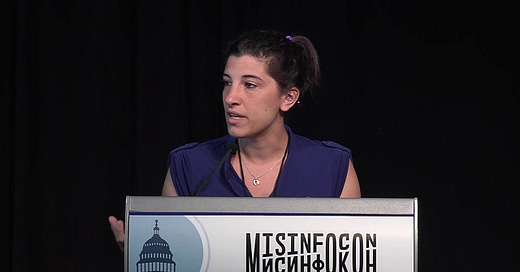How To Skewer Invisible Rulers
Subverting the subversion of Renee DiResta's book "Invisible Rulers" by adding 1-star Amazon ratings and boosting an anon cat's epic spicy review
Comrades: Stanford Internet Observatory “misinformation expert” Renee DiResta is the invisible ruler she warns about.
On June 11, she released her book called “Invisible Rulers: The People who turn Lies into Reality” - a masterpiece in demoralized projection. Allow me to save you $30 and hours of reading her revolting Orwellian double-speak. I will trans…




